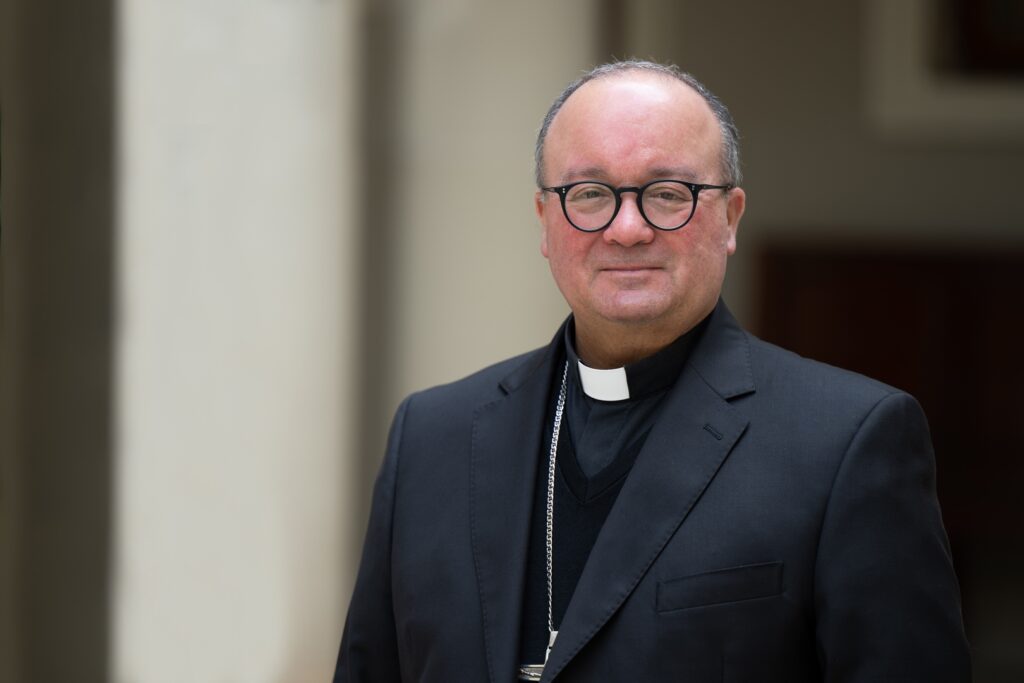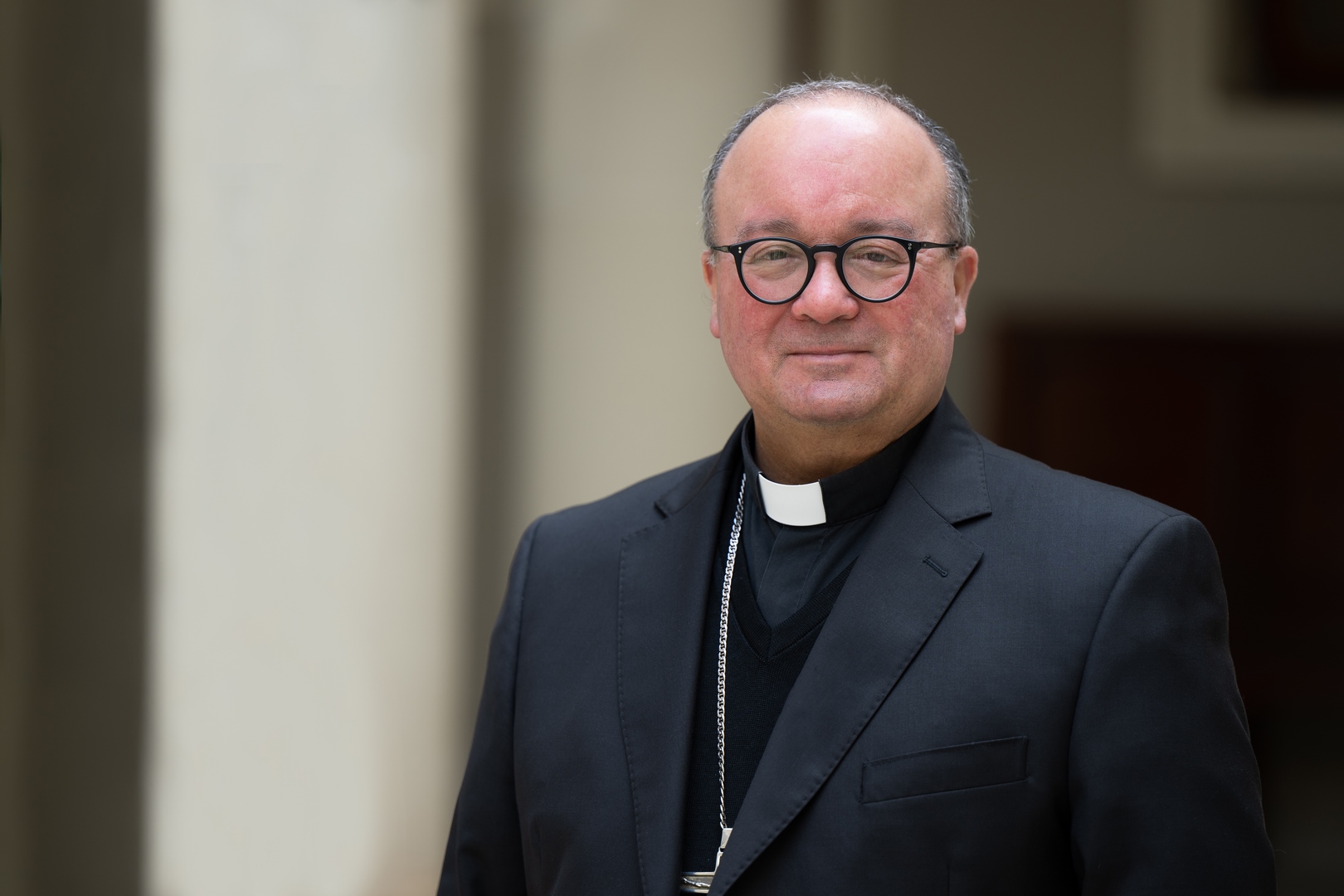
Victims of abuse by members of the clergy have a right to know how their report is handled, Malta’s Archbishop Charles Scicluna said.
In a National Catholic Reporter interview, Mgr Scicluna admitted the Vatican is not at what he termed “an optimal point” with regard to how it follows up with abuse victims, calling the matter “something that needs to be developed.”
Archbishop Scicluna, who serves as an adjunct secretary for the Vatican’s Dicastery for the Doctrine of the Faith and has investigated abuse claims across the world, said: “Most of the suffering I have seen is when victims are left in the dark without any follow-up of the disclosure they have given.”
“We have a law and we have a system which empowers people to disclose abuse or misconduct, but you also have the right to know what happens with their reports,” he said in the interview held just hours after Francis celebrated the historic Vatican funeral for Benedict last week.
In the interview, Archbishop Scicluna also touched upon the Vatican’s handling of the case of French Bishop Michel Santier, who resigned from leadership of the Créteil Diocese in January 2021.
Although the French bishop initially claimed he was resigning due to health reasons, several French media outlets later reported that he had been under investigation at the Vatican for alleged spiritual and sexual abuse of at least two men in the 1990s.
While Archbishop Scicluna did not comment on the Santier case specifically, he said “I realise that these situations create frustration and a sense of loss.”
Archbishop Scicluna also declined to make any direct comment on the ongoing case of Slovenian Jesuit Fr. Marko Rupnik, an internationally recognised religious artist who has been restricted from ministry after adult women accused him of spiritual and sexual misconduct.
Continuum from Benedict to Francis
Speaking on the legacy of the late Pope Benedict XVI, Archbishop Scicluna characterised the different work of Benedict and Francis to respond to clergy sexual abuse as part of a “continuum” of efforts.
The Maltese prelate served as a staff member in the 2000s under Cardinal Joseph Ratzinger, the future Benedict, while Ratzinger was prefect of the Congregation for the Doctrine of the Faith.
Archbishop Scicluna has since also worked closely with Francis, and helped organise a historic 2019 sexual abuse summit at the Vatican.
“Francis is not copying Benedict; Francis is Francis. But there is a continuum, and there is a consistency,” he said.
“Francis takes the theology of solidarity to a very deep way; when one member suffers, we all suffer,” the Archbishop said, adding that “there is a continuum, but there is also a development; it is not simply repeating.”
He added that Vos Estis Lux Mundi (“You are the light of the world”), a 2019 document issued Pope Francis’ own initiative, is still in effect.
The document mandated that all priests and members of religious orders worldwide be obligated to report suspicion of abuse or cover-up to their bishop or superior.
It also created a new global system for evaluation of reports of abuse or cover-up by bishops, was initially approved for a three-year ad experimentum trial period, which lapsed last summer.
“The fact that something is ad experimentum doesn’t mean that it has an expiration,” Archbishop Scicluna said.
“It’s obviously a signal that this is probably not perfect, and we’re going to tweak it to make it more in light with reality, because sometimes reality goes beyond what the law says.”
With regard to what has been learned over the three years Vos Estis has been in effect, the Archbishop spoke of focusing on implementing the document, and making sure that all Catholics are empowered to report suspicions of abuse.
“The law is an instrument, but it’s not magic,” Archbishop said, adding “if you don’t want to implement it, it’s not going to be implemented, and that is a challenge.”
“Are we going to accept the values and the uncomfortable situation that legislation like … Vos Estis puts us in?” he asked. “That is the question. And are the people empowered enough? Do they know about these laws? Are they aware of these laws? And are they also willing to make the letter of the law something that is alive?”
Seeing Ratzinger ‘mature’ on abuse
Archbishop Scicluna also spoke at length his time working under Ratzinger at the Vatican’s doctrinal office.
After serving for several years at the Apostolic Signatura, the Catholic Church’s highest judicial authority, Archbishop Scicluna first arrived at what was then the Congregation for the Doctrine of the Faith in 2002.
He took up the role of the office’s Promoter of Justice, or lead prosecutor, which he would hold until 2012, when he returned home to eventually become the Archbishop of Malta.
The Archbishop took up the role as the Vatican was dealing with an “avalanche” of abuse cases, starting after the 2002 reporting on widespread abuse and cover-up in the Boston Archdiocese.
Mgr Scicluna said he and Ratzinger would meet every Friday to discuss the pending abuse cases.
“I saw … Cardinal Ratzinger mature in his understanding of the phenomenon,” said Scicluna. “We were reviewing hundreds of cases every year and the narratives teach you a lot. They teach you about not only human weakness, but also the dark face of abuse, the effects on victims and also the fact that there is a narrative that repeats itself.”
The Archbishop praised Ratzinger for how he coordinated his staff, saying, “He had the humility to rely on us experts.”
“He knew his limits in canon law,” Archbishop Scicluna said, adding ”but he had this huge understanding of human nature, and also the theology and the anthropology behind misconduct, which obviously brought a deepening of discernment on the case and what to do under specific circumstances.”
Recalling his initial days as one of Ratzinger’s staff, the Archbishop remembered the cardinal making a special effort to help with his work.
Upon arriving at the building for his first day in 2002, Archbishop Scicluna said he noticed his new office did not have a computer. He said he told Ratzinger’s second-in-command, then-Archbishop Tarcisio Bertone, that he needed a computer to do his work.
Although there wasn’t funding in the budget for the purchase, Ratzinger provided the device. “The cardinal actually bought my first computer from his own pocket,” Archbishop Scicluna remembered.
Source: Newsbook.com.mt





